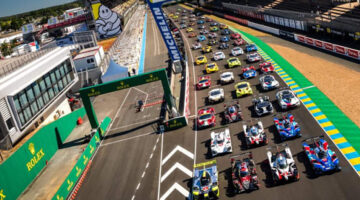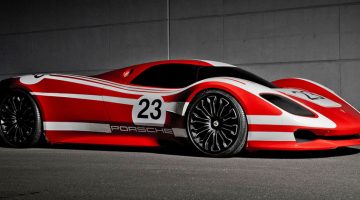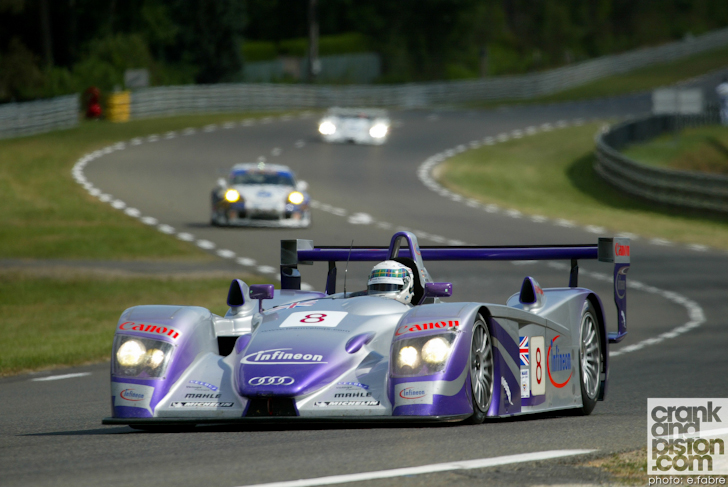
That takes us to a very lucrative American Le Mans Series career and a fairytale result at the 24 Hours of Le Mans in 2008. There was a lot made at the time when took your second win, since it came exactly ten years after your first in the Porsche 911 GT1 with your then-teammates Laurent Aïello and Stéphane Ortelli. Does the gap in-between make the second more special, given the time you had to wait?
Well, the first win was quite early on, and it was a case of ‘well, lucky me’. The year after that we were leading when my teammate [Thierry Boutsen] had an accident in the middle of the night. He got tagged by a backmarker and that put us out of the race. Another year we had a gearbox change. But every year I’ve led the race, and it didn’t always come round to us. In 2007, the year before, Tom [Kristensen], Dindo [Capello] and I had done absolutely everything perfectly and were leading by three laps when we had a wheel failure. I couldn’t believe, honestly, that you could have a perfect race, and I knew that Peugeot was going to be a lot stronger in 2008. So I was pretty relieved when we pulled off what actually was the perfect race.
It’s bloody hard to win! I mean, you think about Mario Andretti the amount of times he raced there and never won it. It just proves how difficult it is to win this race.
Does the knowledge that greats like Andretti never won the race make your own victories there all the sweeter?
[Pause] It certainly makes you appreciate it more, but I wouldn’t necessarily say it makes it sweeter. You appreciate the nature of the event, and Sebring is another one like that. A couple of years ago, I equalled and then overtook Stirling Moss and Juan Manuel Fangio [for race victories]. I’m a wee boy from Dumfries for goodness sakes, and I can’t quite imagine my name being linked and even overtaking these kinds of characters. So yes, there’s no question it does make you think and appreciate. But it’s not something I dwell on too much.
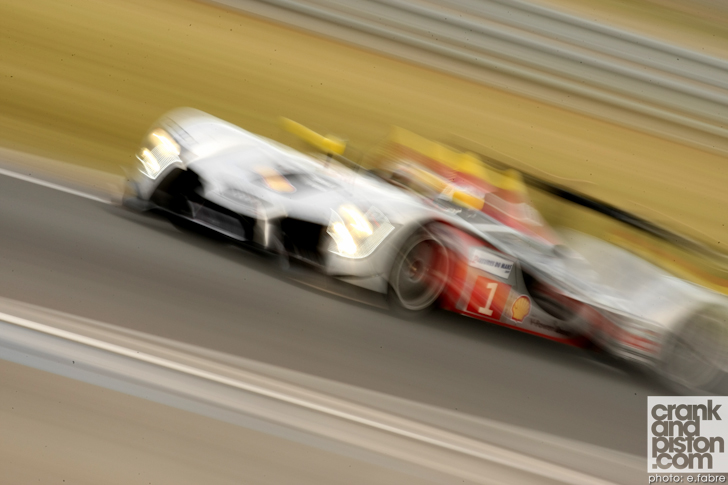
It’s interesting that you mention Sebring because from the outside that seems to be a race you just click at. In your last eight races there you’ve won four of them and only finished off the podium twice. That’s a pretty remarkable record.
I just think Sebring’s a different style of race. It’s much harder and more aggressive, and more like a sprint race on a bumpy and difficult track where a lot of things can change. Personally, I have to say I enjoy Sebring more than I do Le Mans, and it’s nothing to do with the results. Sebring’s the first big race of the year for us and it’s a real cut and thrust aggressive little thing, and I enjoy that style of racing. At Le Mans there’s such a lot of build up and pressure that I wouldn’t necessarily say you get the same pure enjoyment, which you should still have when you drive.
It’s a shame then, given the regulation changes for the new United Sportscar Racing series, that Audi’s LMP1 prototypes won’t be eligible to compete at the 12 Hours of Sebring in 2014. How disappointing is that for you personally?
Well, in a way it’s disappointing and in a way it’s actually the best thing in my opinion for American racing. The teams weren’t running LMP1 cars anyway and I think the new championship is a positive thing for America. It isn’t from my point of view or Audi’s because we’d like to continue to race there, but that’s the way it is. Personally I would still like to go back because I enjoy the event just like I enjoy the Petit Le Mans. These are races that are a wee bit different. I mean the fan interaction is huge. Petit Le Mans attracts 120,000 fans easily per race, and the spectator interest is on a very different level to what it is in Europe. Even compared to Le Mans, and I have to say I quite enjoy that.
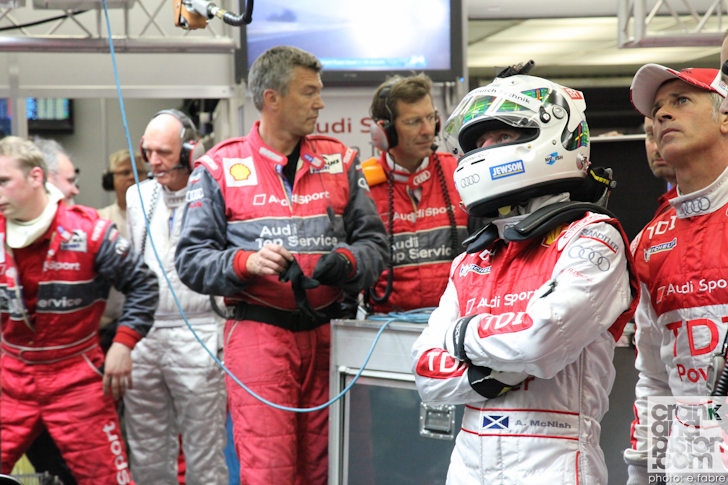
You’ve done your fair share of racing in the American Le Mans Series and seen how the series has developed, but we haven’t seen anything quite like this in some time.
Well the first Petit Le Mans I competed in was in 1998, and that was a good even. Back then it had about 25,000 to 30,000 spectators, and that was big for sportscar racing then. Now you add 100,000 extra on top of that and that’s what the sport became. But that took ten years to build. Don Panoz [founder of the ALMS] realised that there were factions here and factions there in America, Europe and Asia all running to their own regulations without necessarily having any coordination or link. That, from a business point of view, was a bit stupid., and from a logical point of view it was insane! So the new ALMS gave everybody the opportunity to race under the own regulation, which is very clever and logical, and people jumped on it. It became a defacto world championship. All the manufacturers would go there to compete, and even manufacturers who didn’t sell cars in America like Peugeot still came to Sebring and Petit Le Mans. It became the place you had to go.
Do you anticipate United Sportscar Racing to grab attention in much the same way…?
Ah, you can’t expect it to be up and running and sprinting ahead in day one. You’ve got to give it time. You’ve got to give the people time to build it: build it and they will come. And Don Panoz certainly did that with the ALMS. He gave everyone the opportunity to display their products, gave the fans the chance to get up close and personal, and gave the drivers through the championship a chance to show what they can do.
And it made a lot of careers. It made Audi in sports car racing in a way, and showed America how good its diesel engines were before they even brought them to the marketplace. Even down to John Hindhaugh on commentary, it made his career too. That era gave a platform for so many people opportunity to say ‘hey, this is me’.
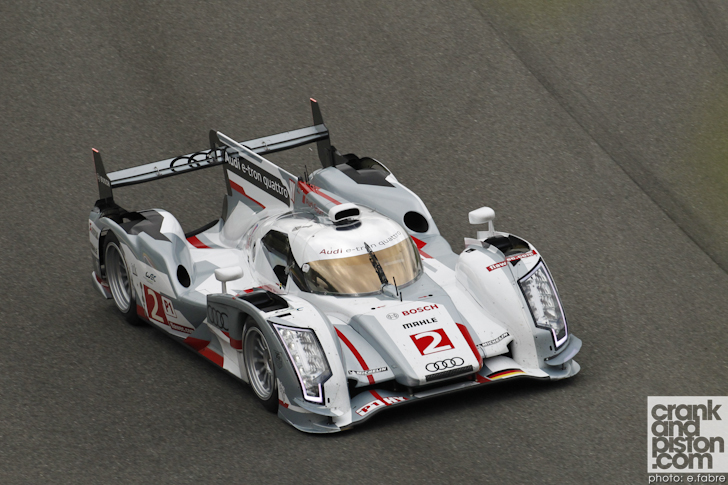
Off and on your ALMS career spanned nearly 12 years. That was until you took on a different challenge in 2012 with the newly established World Endurance Championship, again with Audi.
Oh, for sure. In 2007, I’d won three titles and Dindo and I had won two of them back-to-back. So we were interested in a new challenge. The talk of a word championship was always there, but it was never really there. Then when it finally came around, it was a wee bit of a surprise. I have to say it is what everybody has wanted. There was nervousness, about whether the FIA and the ACO could live in harmony, but what we’ve seen is that so far it has strong leadership. Gérard [Neveu, CEO of the WRC] knows what he wants: he goes in a certain direction and that’s the way it is. And I think that this is something people appreciate. From a driver’s point of view, you always want to be fighting against the biggest competition and for the biggest prizes, and that’s the nature of what we do. And it doesn’t come much bigger than the WEC.
Of course Peugeot pulling out of motorsport on the eve of the WEC’s debut season rather knackered that. Again, how disappointing was that for both yourself and Audi?
Oh it was a huge shock, and a huge disappointment. Audi has evolved its motor racing program to race against people, and that’s why it doesn’t have one-make championships. Audi wants to race against competition. So Peugeot pulling out, who were one of our stiffest competitors – I have to say the race and championship fights in America with Peugeot and Acura were pretty bloody hard –was a huge, huge shock and a big disappointment. And at the time, there was a lot of question marks in certain peoples’ minds – I’m not saying WEC or Audi specifically – but many were wondering if the world championship would ever happen. Now we’re 12 months down the line and nobody’s remembering Peugeot apart from in a historical tense.
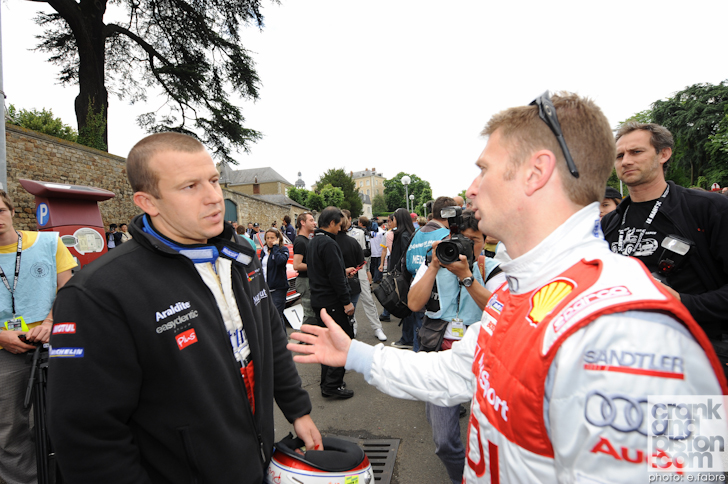
Did you ever feel that the championship wouldn’t recover from this?
I was maybe a little bit naive, but I said at the time that I thought [Peugeot pulling out] would be a bump in the road and that the WEC would continue. And thankfully that seems to have been proven right. Now we only think of the competition with Toyota, and we think fondly of the races we had against Peugeot. We’d like them to be in the series, there’s no question, but Toyota has come in and done a bloody good job – too good in some ways in my opinion, I’d prefer it if they were slower! – and they’ve taken over very quickly from where Peugeot left off.
That brings us to a much tougher fight for the world championship against Toyota than Audi experienced last season. How significant do you think the R18 e-tron Quattro will be in this fight?
I know a lot of guys at Toyota and I know that they’ve been pushing hard. They were already very quick – in fact I think they were quicker in outright pace last year than Audi was – therefore they’re going to be strong throughout the season, without doubt. On the other side of it, we’ve developed our car, we’ve got more out of the hybrid, and we understand how to use the Quattro. That’s technically quite a difficult challenge running all of the systems so that they compliment each other. The regulations have changed, which has been a little detrimental to us, but we’ve also got a better feel overall for where Toyota has a performance advantage and deficit. So taking all that into consideration, it is going to be a pretty tough battle. Whenever we make up a gap and overtake them, they’ll make up the gap and come back at us. But that’s how racing should be.

